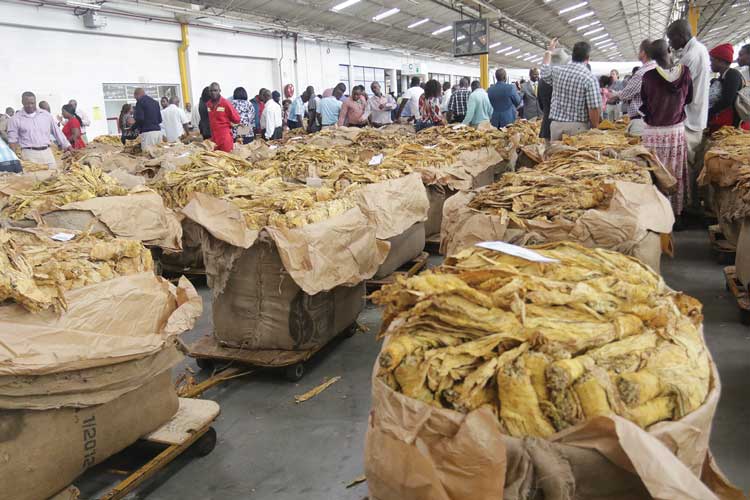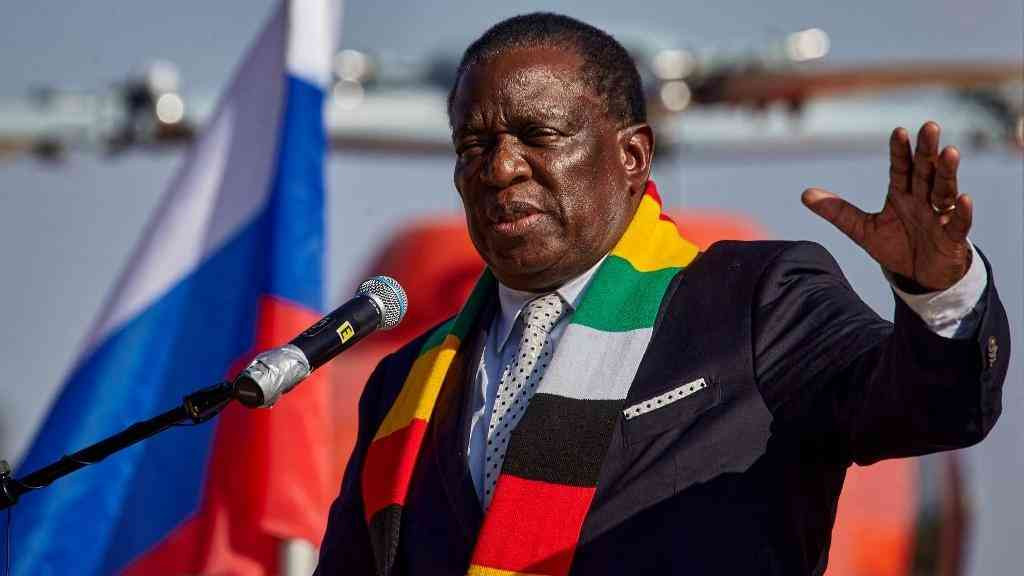
BY NYARADZO NYERE
A tobacco company, Voedsel Tobacco International, has once again hogged the limelight for short-changing local farmers
In mid-January, The Standard, working in collaboration with Information for Development Trust, a non-governmental organisation running investigative reporting projects, exposed Voedsel for underpaying tobacco farmers contracted by it and attempting to bribe a journalist who probed the stand-off with its clients.
It has since emerged that Voedsel is still being dogged by controversy, following an alleged fraudulent deal by one of its employees.
Reliance Hamandishe, a 29-year old farmer, has spoken out on how the employee, Robert Mahufe, allegedly sought to cheat him out of more than US$2 000 through fraudulent means.
The fingered employee, is brother to Innocent Mahufe, the Voedsel chairperson.
Due to poor financing, Hamandishe opted to be contracted by Voedsel to grow and sell his tobacco in the 2021-2022 farming season.
In the process of arranging the deal as a Voedsel contract farmer, Hamandishe was introduced to Robert in June 2021.
- Chamisa under fire over US$120K donation
- Mavhunga puts DeMbare into Chibuku quarterfinals
- Pension funds bet on Cabora Bassa oilfields
- Councils defy govt fire tender directive
Keep Reading
“Robert said he would help me get the inputs and asked for names, national ID number, my farm name, grower’s number and phone number, which I gladly gave to him,” Hamandishe said.
“He said he would contact me once there was progress with the inputs distribution.
“That was the last time I heard from that man, since June last year.”
Since it was taking too long for Robert to deliver on his promise, Hamandishe looked for resources elsewhere and self-financed his tobacco project, said the farmer.
However, he still opted to sell his produce through Voedsel, which was promising cut-above-the-rest prices for the tobacco.
According to Hamandishe, a university graduate who is still struggling to land a job, Voedsel surprisingly withheld the US$2 281 that he had realised from his crop.
He was shocked when he went to enquire about his money when Voedsel insisted that he had received a loan from the company, hence its decision to withhold the money.
“They withheld all my money under the term ‘Voedsel recoveries’.
“I didn’t know what this term meant so I went to enquire from one of their offices, only to be told that I had taken a loan from them and they were recovering the money,” he said.
“I was shocked because the last time I remembered trying to take a loan from them I hit a brick wall.”
Undaunted, Hamandishe made numerous trips from Macheke to Marondera to chase up on his money since he knew that he had never taken a loan from Voedsel.
Even though senior employees promised to attend to his complaint of fraud, Hamandishe said, no action was taken against Robert, who allegedly used the details that he had obtained from the former to make a fraudulent loan claim against an account he created for the young farmer.
“I did not give up. I expected to get what I worked for and felt much drained,” he said.
“I tried very hard to fight depression, which was taking a serious toll on me.”
However, it has emerged, Hamandishe was paid after media inquiries and his own social media campaign in which he revealed details about the alleged fraud.
When contacted, Robert denied ever defrauding Hamandishe.
“Those are false statements that he is making. I can’t talk about it with you; you a journalist,” Robert said.
“The owner of the company is my brother and I can’t defraud my brother’s company.”
Chelesani Moyo, the TIMB public relations officer, confirmed receiving Hamandishe’s complaint.
“TIMB received a complaint from a farmer disgruntled about deductions by a contractor, who never availed the said inputs to the farmer,” Moyo said.
“We engaged the inspectorate department to undertake the necessary investigations in order to resolve the issue in an amicable manner.
The TIMB had not availed findings of its purported investigation by the time of going to print.
Moyo added: “In order to bring sanity to the industry, we will work towards resolving any disputes that are brought to our attention.
“We have different departments that serve different purposes and, depending on the nature of the dispute, we will aim at resolving the issue at hand.”
Hamandishe confirmed that TIMB was involved in solving his dispute, but he felt he was being tossed around.
“TIMB…suspends rogue tobacco firms.
“We recently suspended two contracting companies’ licenses and also deactivated a number of growers who were found wanting,” said Moyo, without naming the offending companies and farmers.
Hamandishe believes numerous other farmers have fallen victim to fraud by Voedsel employees.
“There are many others like me who are in such situations, but they don’t know the channels to use to lodge their complaints and end up accepting losses,” he said.
“I was lucky because I used social media to express my concerns but others are not aware of such platforms.”
Voedsel director, Tennyson Hwandi did not respond to questions sent to him.
Contract farming is an attractive option to local farmers who cannot access funding from banks and other sources.
However, because of ignorance of desperation, many farmers have been duped by contractors.
A number of Zimbabweans ventured into tobacco farming after the fast track land reform programme, which resulted in a massive growth of the sector.
Agrarian experts Freedom Mazwi, Walter Chambati and George Mudimu in their paper titled: Tobacco contract farming in Zimbabwe: power dynamics, accumulation trajectories, land use patterns and livelihoods attribute the rise in the number of contract farmers to better extension services, improved and guaranteed access to input and output markets.
They say at the same time, “tobacco contract farming is marked by several vicissitudes.”
“Some farmers withdrew from contracts due to low output prices and high input costs resulting in indebtedness,” the paper says.
“Similarly some contracting firms dropped out from the contracting arrangements.
“Overall, many contracted growers accumulated more than non-contract farmers.”
Other investigations revealed that some companies that offer tobacco contract farming facilities were manipulating poor farmers by arbitrarily amending their contract agreements in order to under pay them.
Others simply refuse to pay farmers after they deliver their tobacco or deduct more money than they loaned out to the farmers, leaving many in serious debt.









